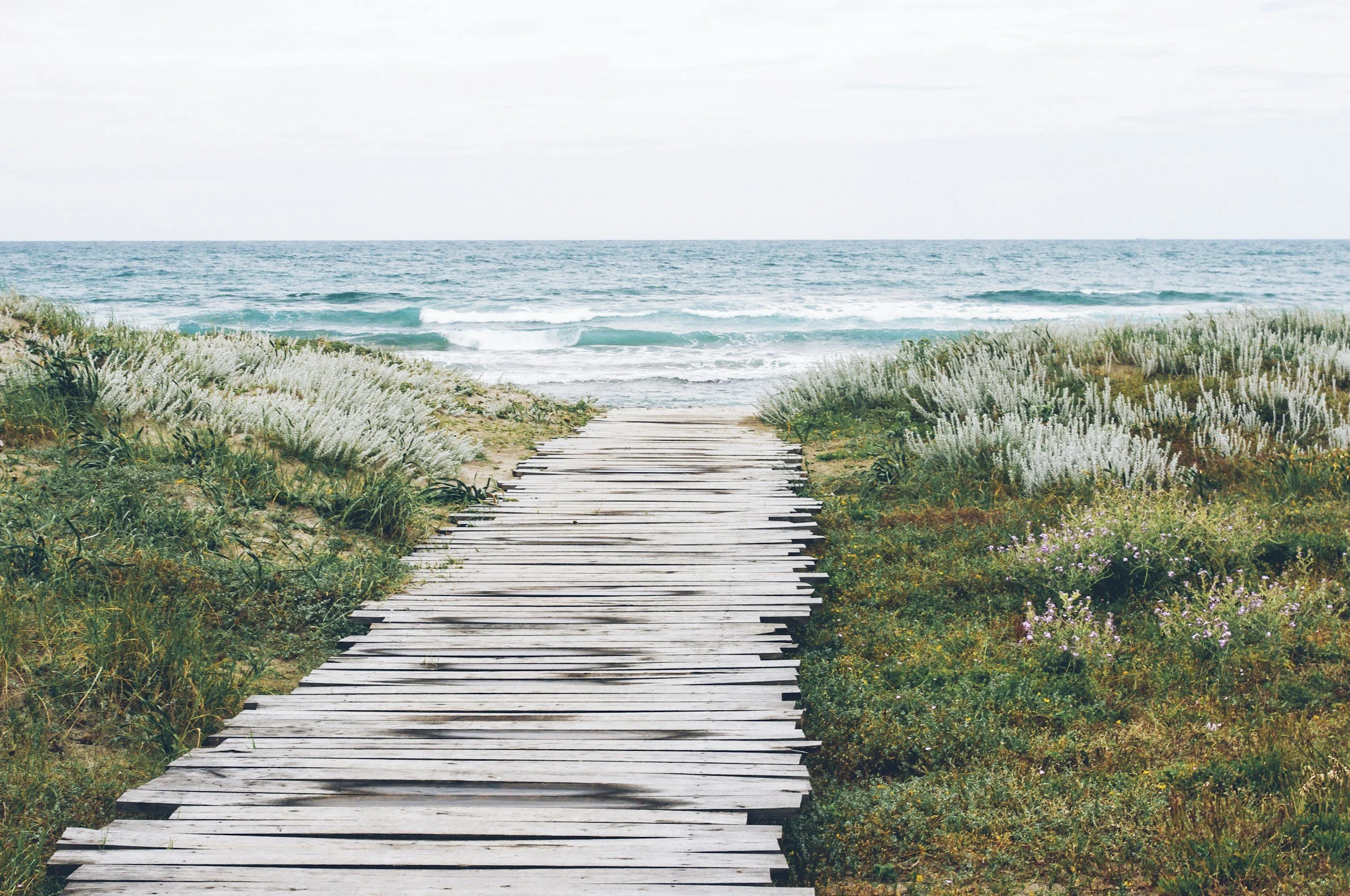Lost - and Found?
A retired man, divorced and home from working abroad, is facing up to life without his family. He returns to a favourite place – a beach in the Northeast of England – with his memories, to try to come to terms with what he has lost. However, what he finds on the beach is completely unexpected.
As he drove into the car park, he realised the barrier was different, but that wasn’t all that was new. There were paying machines, with notice boards fully explaining the various payment options. This used to be a free car park. It used to be a full car he was driving – dog and all – but those days were over.
Despite the certain knowledge there’d be CCTV, and the time he drove under the barrier would have been clocked by a computer somewhere – and against which there would be no appeal – he sat there, windows closed against the screams of the seagulls, staring at the bank of sand and grass that, then and now, impeded his view of the cold North Sea.
He stared straight ahead for a full five minutes as the memories washed over him. There was no going back, there never was; but his therapist had suggested this visit might be a good idea: ‘baby steps.’ He could never return to the house, for the simple reason it had been sold. No-one he knew even lived in the area anymore. He’d changed too. Then, there had been thick, dark brown hair on his head, and no beard. Now the remaining hair was grey – and there was more of it around his chin than on the top of his head. And so many more wrinkles.
But this … These visits to the beach, had been a family day out. When it all started, the children had been small, so the event had to be planned: contingencies thought about, and countered with extra clothing, towels, snacks. He hadn’t minded the half-an-hour’s drive to the coast, as he knew there would be at least an hour’s walking at the end of it. The dog, never an entirely happy traveller, would pant and whine, but even that could be tolerated as the girls would twist round in their car seats (later, just seatbelts as they grew) to offer comforting words. Usually, a hand or two would sneak over the back to stroke and soothe.
Back in the present, and with a sigh, he released the seat belt and opened the driver’s door. The tangy, salt air – all the sharper due to him having been away from it for so long – hit his throat. He heard the inevitable gulls over the sound of the waves falling onto the beach. There was even a family, a mother with three small children and a dog, passing in front of the car. His smile was automatic. He said something trite, like ‘I remember when mine were that age,’ but the mother merely nodded a half-smile in his direction and headed after her excitable brood, as they made their way down to the beach. Ouch! He must stop ‘recognising’ his now grown-up daughters in every single woman he happened to see on his travels. Besides which, who said their adult selves had to be like their young, adolescent versions?
Payment by App. So, the northeast had caught up with the rest of the country at long last? However, there was still the problem of his phone only picking up 3G with its lousy download speeds. Thankfully, there was a credit card option. At least it all worked at the second time of asking, and the machine was satisfied his car, with the full registration keyed in, was parked legally for the next couple of hours.
It was after paying, he realised he was following the exact pathway down to the beach they had always taken. He checked the car. Yes, it was parked in – or as close as his memory told him – ‘their’ spot. His (then) wife would have told him off over such sentimentality: ‘one parking spot is just the same as another.’ Very true, but in those days, he had been a creature of habit. Methodical. He liked to think he was changing, but progress – judging by how he had, so far, followed old habits from years back – was slow.
Although this was the first time he had driven to the beach by himself, it wasn’t the first time he’d done this part of the walk alone. The girls, sure-footed as mountain goats, would dance their way down the sandy pathway to the beach, and race towards the sea. The dog would squat on leaving the car, requiring a poo bag to be deftly wielded, and a trip back across the carpark to the appropriate litter bin – he wasn’t going to be carrying dog mess for the next hour if he could help it! He had been left to lock the car and play catch-up with the family.
Finally on the beach, he (as the family always had done) wandered south. The girls would not hunt their treasures here again, they had grown out of that excitement years ago. They never found any diamonds – quite the contrary, there were several ‘near misses’ when a child’s foot almost sank into some dog mess that a careless owner seemed to think could wait for the incoming tide to wash it away – but they usually found something.
Seaweed, driftwood, an abandoned dog’s ball (the teeth marks being a give-away clue as to the previous owner) were all, at one time or another, taken home to be stored in the garage or garden shed for a while, before his ex-wife got rid of it. However, the real find would be some sea-glass.
Smooth, rounded, no two pieces alike. The northeast used to be factory central, but no more. The sea was a dumping ground for everything from coal-tip slag to broken beer bottles. The coal dust had to be cleaned up, but the sea did its own job on the glass. It smoothed the sharp edges, it diluted the colours and sand-blasted the surface until what was left was a unique pale blue, or green, or brown, pebble. Other colours do exist, but those were the colours they found together. Most people walked over them, ignoring what presents the sea had given back, what the sea had done with humanity’s discarded detritus. Until he had left home, he had watched as both girls filled up a little jewellery box each with these treasures.
It was one of the (many) accusations. He had forced the girls to participate in theft. It seems you are not supposed to take sea-glass from the sea-shore. Apparently, you could be pinching it to fashion the beads into jewellery to sell – very naughty. He hadn’t known about the illegality, but he couldn’t deny the fact he had helped the girls pick sea-glass up from the beach. Their mum had helped, too – except that was ‘under duress.’ Fortunately, perhaps, it had been decided this accusation came under the ‘too petty to be considered’ aspect of the divorce. His barrister thought if he’d fought harder, he could have got more, but what was a bigger share of the money against losing the girls? Once his work took him abroad, the loss became permanent: his ex-wife would never bring the girls out to him, and, when he was home, any and all plans to meet up fell through – often at the last minute. Now he was retired, of course the contact details he had were out of date.
He realised he must have been standing there for a while. He could even hear the thrum of the off-shore wind turbines. There were more of them than he remembered, but there was also sea-glass at his feet. He squatted down, digging at the pebbly sand with his fingers. In a short minute, he had three smooth pieces in his hand: two green and a brown.
Whump! A wet, furry lump had charged into him and knocked him off balance. He stumbled, half fell, side-stepped into a puddle of sea water, and righted himself.
‘Brutus! Oh, Brutus! Naughty Brutus!’
Three childish voices, calling and chasing after the cockerpoo, who did not seem to regard itself as having done anything wrong, as it dashed off into the waves without a second glance. It was the same family he had smiled at in the carpark – he should not be surprised at that. Same carpark, same beach.
‘Are you all right?’
‘Yes,’ he said, having recovered, ‘no harm done.’
‘We’re sorry,’ the eldest seemed to be the spokesperson for them all. He could see their mother trying to recover the dog from the sea – with spectacular lack of success.
‘Look,’ he said, ‘it’s not your fault.’ Then, realising in his stumble, he had closed his fist over his finds; he held out his hand to the children and opened it: ‘Would you like some treasure? I think there’s one piece each.’
Three cautious hands ventured towards his. ‘It’s sea-glass,’ he said, ‘You can show Mummy. I just picked them up off the beach. All free.’
‘What’s this?’ A new voice.
‘It’s sea-glass, Mummy. The man said we can have them. Can we keep them? Please?’
Mummy took a look, picked up the one from her eldest’s hand. ‘You know, I used to have quite a collection of these when I was a child …’
The mother turned to look into his eyes: ‘Dad …?’ she said.



